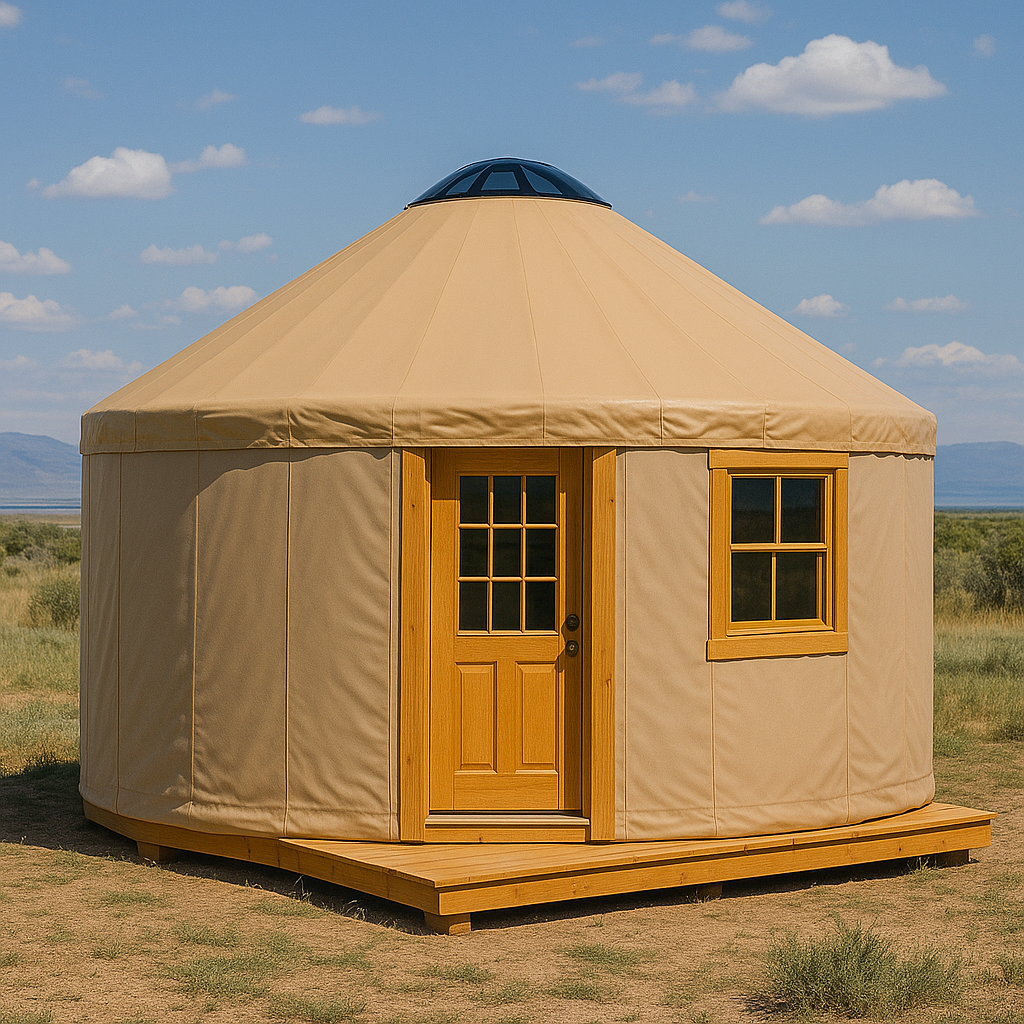Affordable Shelter Ideas: From Sheds to Yurts on Recreational Land
Simple Structures for Weekend Use, Storage, and Off-Grid Retreats
If you own recreational land in Utah, chances are you’re thinking about building something—just not a full house. Whether you want a dry place to store gear, a quiet weekend escape, or a starter shelter before a cabin build, there are affordable options that don’t require a full foundation or massive investment.
Here’s a breakdown of shelter types commonly used on recreational land—and what to know before you build or place one.
1. Storage Sheds
Best for: Gear storage, small overnight shelter, tool setup
Basic prefab or custom-built sheds can be used for everything from storing firewood to sleeping in during fair weather. Some owners insulate and finish the inside for more comfort.
Considerations:
Most counties allow small sheds without a permit (check size limits)
Anchoring is essential in high-wind zones
Easy to transport or build onsite
2. Portable Cabins or Tiny Homes
Best for: Weekend trips, early-stage building, long-term planning
These prebuilt structures can be placed on blocks or skids and used as a cabin until a permanent home is built. They often come finished with windows, doors, and insulation.
Considerations:
May require a permit depending on county and utilities
Can be delivered in one piece or built onsite
Higher upfront cost, but durable and weatherproof
3. Yurts
Best for: Unique getaway space, seasonal use, off-grid living
Yurts are round, tent-like structures with a wood frame and heavy-duty canvas cover. They’re surprisingly roomy and can include wood stoves, decks, and even solar setups.
Considerations:
Needs a flat platform or deck for setup
Best for seasonal or summer use unless upgraded
Permits vary by region—check local zoning and usage rules
4. Canvas Wall Tents
Best for: Short-term stays, hunting camps, mobile shelter
Heavy-duty canvas tents offer a great temporary solution for camping or seasonal use. They’re easy to set up and can be packed down between visits.
Considerations:
Not suitable for long-term weather exposure without maintenance
Can be paired with a stove jack and wood-burning stove
No permits needed for non-permanent setups
5. Carports or Covered Platforms
Best for: Shade, vehicle protection, base for future builds
Simple metal carports or DIY pole structures offer shelter for RVs, trailers, or workspaces. Some owners also build decks or platforms to create a shaded outdoor hangout.
Considerations:
May require anchors or concrete footings
Use pressure-treated wood or steel for durability
No walls means limited protection, but lower cost
What About Permits and Utilities?
Most counties in Utah allow non-permanent structures without a full building permit—as long as you don’t hook up permanent water, septic, or electrical systems. Always check with your local planning and zoning department before placing any structure, especially if:
You’re within a fire zone
You’re close to a property boundary
You plan to leave the structure up year-round
If you do plan to build long-term, starting with an affordable shelter can still be a great first step.
Use What Works for You
There’s no one-size-fits-all shelter. Some owners start with a shed and upgrade later. Others go straight to a yurt or portable cabin. The key is knowing your budget, your land’s conditions, and how you want to use the space—whether it’s a seasonal basecamp, storage spot, or early step toward a future homestead.
Looking for Land You Can Build On?
Explore our Utah land listings today—most properties allow sheds, trailers, or cabins with few restrictions. We’ll help you find a lot that fits your goals, your timeline, and your budget.
👉 Browse available properties here »
📞 Call 877-RANCHES to talk with a land expert





